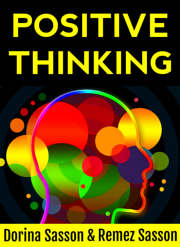
Is it Normal to Wake Up Tired? 7 Things to Try to Get Over the Grogginess
Waking up is hard, but stressing out about why your mornings are plagued by low energy or no motivation can make it worse. There’s no reason to worry: waking up tired is completely normal.
A practical, powerful guide to using creative visualization to reshape your inner world and transform your life. Discover the Guide
Thankfully, you can brush off morning grogginess by using the strategies found in this article.
Waking up Tired: Is That Normal?
While it may come as a surprise, waking up tired is 100% normal, even if you get 8 hours of sleep every night. Sleep inertia, a phenomenon that happens to humans when they wake up, occurs due to adenosine. Adenosine is the chemical that causes you to feel tired at night.
Adenosine builds up during the day, but when we go to bed, our brain starts to release it. Unfortunately, the residue is still there when we wake up. That’s why it takes us 60 to 90 minutes on average to fully wake up. Grogginess isn’t a sign of poor sleep.
Doctors will only consider grogginess a problem if you remain tired throughout the day or if your energy drops significantly mid-way. Most people can easily combat their sleep inertia.
How to Get Over Morning Grogginess
If you’re still tired after waking up, even after following our tips, you should try utilizing sleep apps to track your REM cycle. Show your doctor these findings, so they can help you.
1. Don’t Stay in Bed
Before reading this article, you probably thought that waking up tired means you didn’t sleep enough. By that logic, it makes sense why you’d hit the snooze button and go back to bed. But sleeping in can actually disrupt your REM cycle and disrupt your ability to function normally.
2. Drink Some Water
If you have a closed water bottle, fill it up before you go to sleep and place it at the end of your bed. When you wake up, you’ll have to get up and drink from the bottle. Not only will you prevent dehydration, a common sign of fatigue, but you’ll also get yourself out of your bed!
3. Keep on Moving
Did you know that your body paralyzes your muscles while you sleep?
This phenomenon, called atonia, helps you stay relaxed during REM. If you exercise immediately upon waking, you’ll feel a rush of energy-stimulating endorphins. 25 minutes is all you’ll need to wake up.
4. No Processed Sugar
A high-carb and protein breakfast can help boost your energy as long as said carbs aren’t filled with processed sugar. Sweetened drinks, breakfast cereals, and pastries will spike your insulin levels, leaving you with a mid-day crash. Stick to fruits and vegetables for your sugar intake.
5. Soak up the Sun
The sun produces vitamin D, an essential component of our overall health. Vitamin D can impact our sleep and mood because it plays a part in reducing inflation and infections. It’s no secret that being sick puts us in a bad mood, so take a vitamin D supplement if you need it.
6. Tackle Your Stressors
Work stress is one of the leading causes of poor sleep, but other stressors in your life could also contribute to sleep apnea or insomnia.
Even if you can’t solve the cause of your stress in one day, it’s still important to address what’s causing your morning grogginess as soon as possible.
7. Follow a Routine
Your body operates on routines, which is why bad habits are so hard to break. By going to bed at the same time every night and reducing your screen time before hitting the hay, you train your brain to get into “sleep mode.” This maintains your circadian rhythm and promotes better sleep.
About the Author
Sarilaya Cada is a freelance content writer. She is interested in a wide range of fields, from project management, to education, to engineering.


